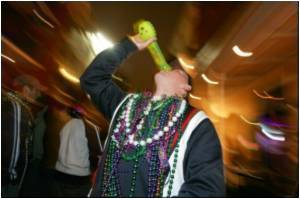According to a new RAND Corporation study, an innovative alcohol monitoring program is imposed upon thousands of alcohol-involved offenders in South Dakota.

Examining the first six years of South Dakota's 24/7 Sobriety Project, researchers found that frequent alcohol testing with swift and moderate sanctions for those caught using alcohol reduced county-level repeat DUI arrests by 12 percent and domestic violence arrests by 9 percent. There was mixed evidence about whether the program reduced traffic crashes.
The results, published online by the American Journal of Public Health, are from the first assessment of the program published in a peer-reviewed journal.
"The South Dakota 24/7 Sobriety Project is reducing both repeat DUI and domestic abuse arrests at the county-level," said Beau Kilmer, the study's lead author and a senior policy researcher at RAND, a nonprofit research organization. "The results suggest that frequent alcohol testing with swift, certain and modest sanctions for violations can reduce problem drinking and improve public health outcomes."
Under the South Dakota program, individuals arrested or convicted of an alcohol-involved offense can be required to undergo twice-a-day breathalyzer tests, typically once in the morning and once in the evening, or wear continuous alcohol monitoring bracelets. Individuals who fail or skip required tests are immediately subject to a short jail term, typically a day or two.
The concept was proposed by the South Dakota attorney general in 2004 and by the end of 2010 more than 17,000 of the state's nearly 825,000 residents had participated in the program, including more than 10 percent of the males aged 18 to 40 in some counties.
Advertisement
Given that the 24/7 program was adopted in South Dakota's counties at different times, RAND researchers used a "differences-in-differences" approach to assess the impact of the program. The analysis made statistical adjustments for several other factors that could influence the number of alcohol-involved arrests, such as county demographics, snowfall and one large public event that dramatically affects alcohol-related offenses in parts of the state.
Advertisement
The 24/7 program is now used throughout South Dakota and similar efforts have been adopted in North Dakota and other jurisdictions.
"It is critical that researchers study whether 24/7 can work outside South Dakota in both rural and urban areas," said study co-author Nancy Nicosia, a RAND senior economist. "It will also be useful to explore how testing programs with swift and certain sanctions can best incorporate positive incentives for compliance as well as treatment services."
Source-Eurekalert









